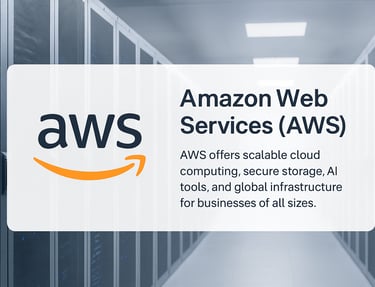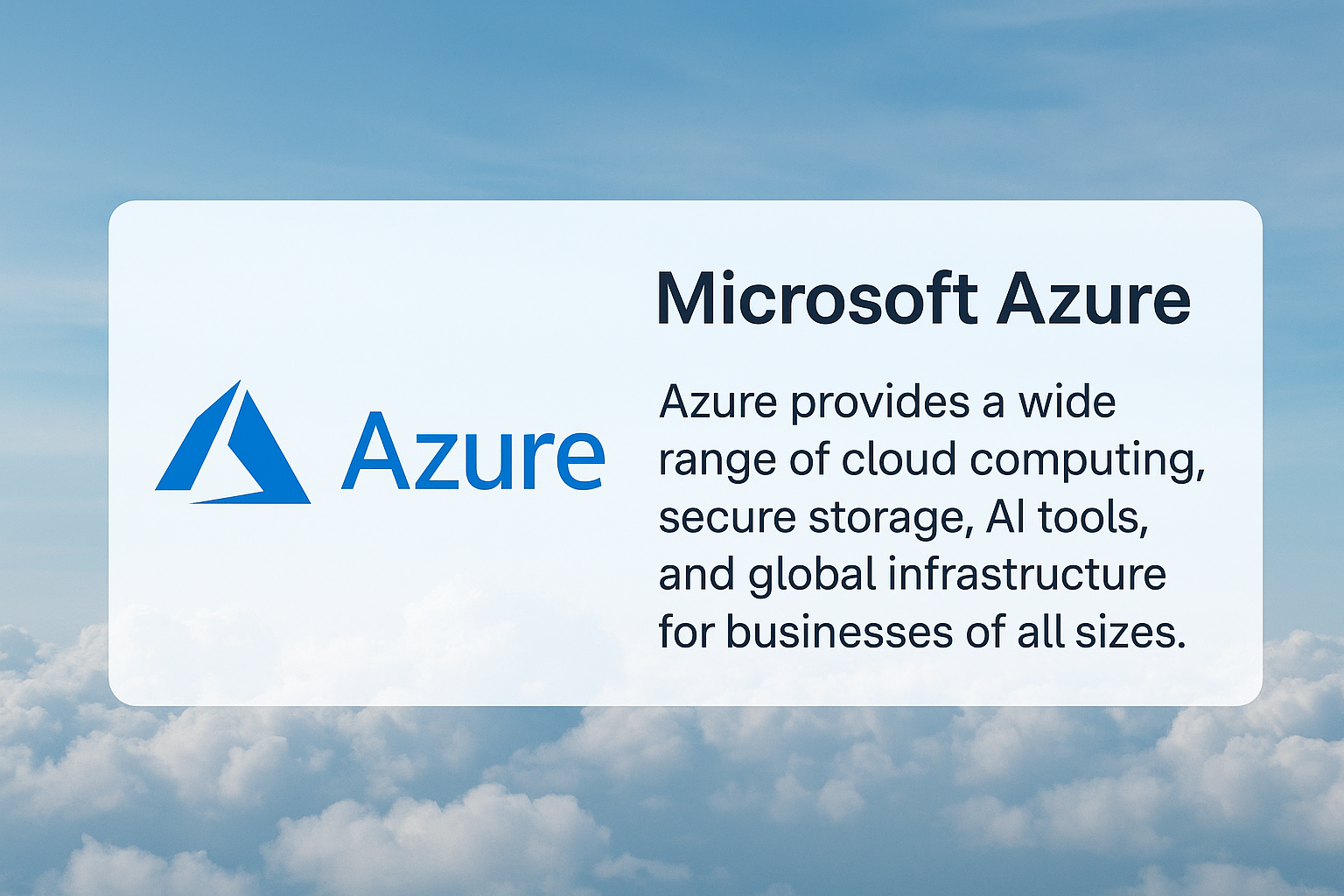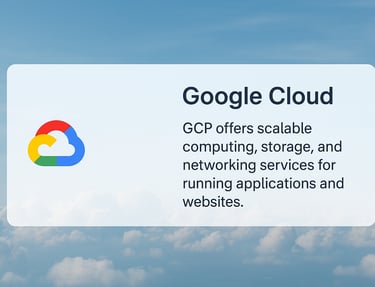Leverage the power of cloud computing with our tailored solutions across leading platforms like AWS, GCP, and Azure, ensuring scalable infrastructure and enhanced performance for your business's unique needs.






Cloud Computing Services
Cloud services are on-demand computing resources—like storage, software, processing power, and databases—delivered over the internet instead of running on your own physical computer or servers.


Platform as a Service (PaaS)
You get an environment to develop, test, and deploy apps without managing the underlying infrastructure.
Example: Google App Engine, Heroku.
Software as a Service (SaaS)
You access software through a web browser—no installation needed.
Example: Gmail, Dropbox, Zoom, Microsoft 365.
Infrastructure as a Service (IaaS)
You rent virtual servers, storage, and networks.
Example: Amazon Web Services (AWS), Microsoft Azure, Google Cloud Platform.
Cloud Solutions
Infrastructure as a Service (IaaS)


Provides basic computing resources like virtual machines, storage, and networks.
Examples:
Amazon Web Services (AWS EC2)
Microsoft Azure
Google Compute Engine
Use cases: Hosting websites, storage, virtual servers
Platform as a Service (PaaS)


Offers a platform for developers to build, test, and deploy applications without managing infrastructure.
Examples:
Google App Engine
Heroku
Azure App Services
Use cases: App development, CI/CD, scalable environments
Software as a Service (SaaS)


Delivers software applications over the internet, typically via a subscription model.
Examples:
Google Workspace (Docs, Gmail, Drive)
Microsoft 365
Salesforce
Use cases: Email, CRM, collaboration tools
Function as a Service (FaaS) / Serverless


Runs code in response to events without managing servers.
Examples:
AWS Lambda
Azure Functions
Google Cloud Functions
Use cases: Event-driven processes, APIs, automation
Key Benefits of Cloud Services


Scalability: Easily increase or decrease resources
Cost-efficiency: Pay only for what you use
Accessibility: Access from anywhere with an internet connection
Reliability: High uptime and redundancy
Security: Managed by cloud providers with robust protection (though shared responsibility still applies)
Quick Links
Leading IT consulting for innovative solutions.
info@jpradainfotech.com.au
+61 (3) 7076 1419
Contact Us
Services
Suite 101, 7 Rushford Lane, Werribee, Victoria, 3030
© 2025 • Jprada Infotech Pty Ltd. • All Rights Reserved


